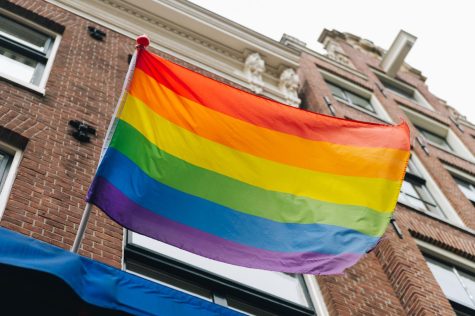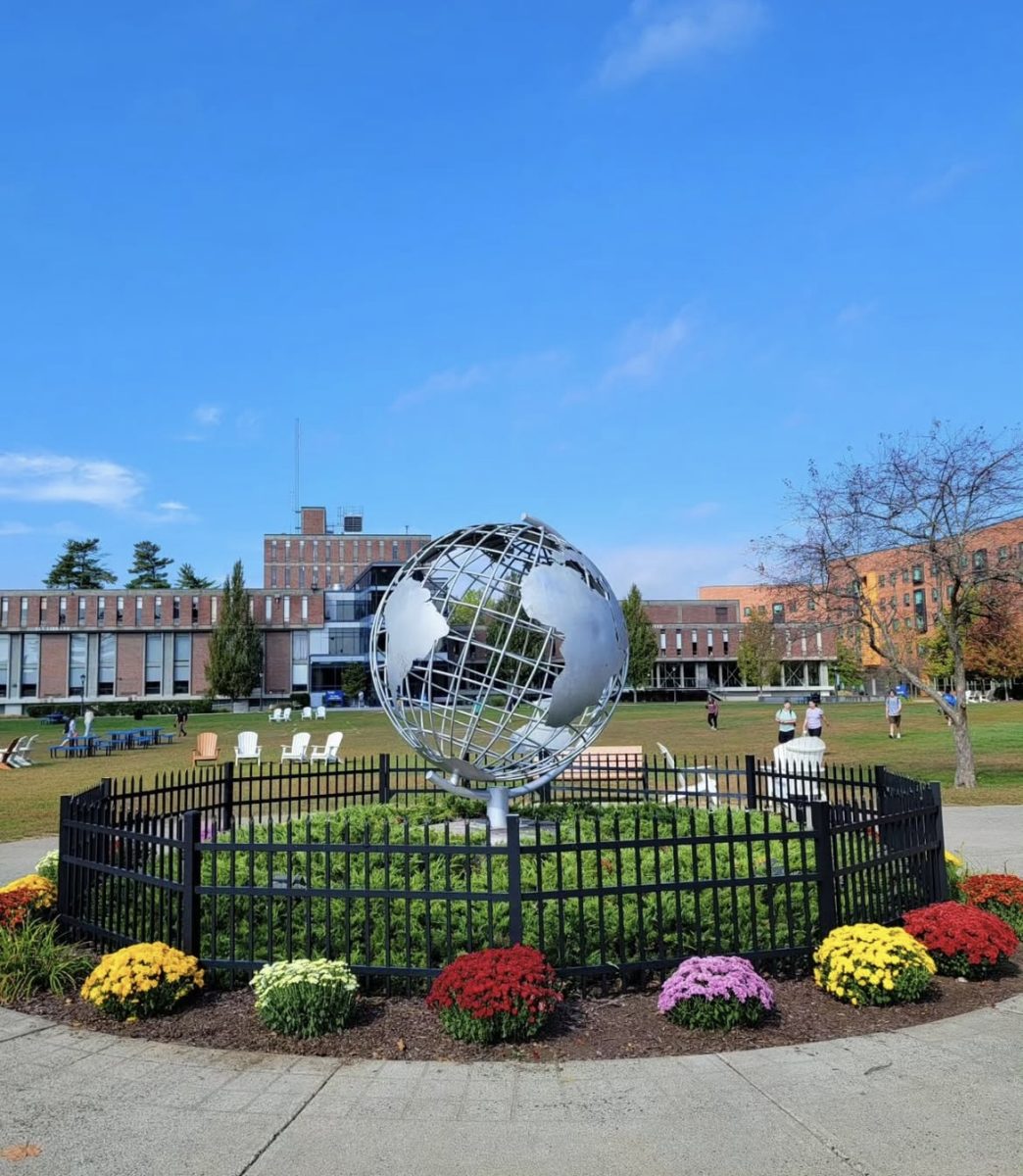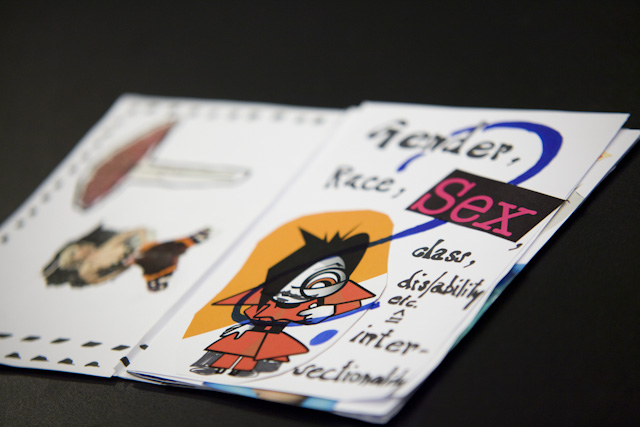Curriculum Censorship: What your School isn’t Teaching You
April 25, 2023
Does your student attend an American public school? Chances are they are being lied to and deceived. Lawmakers and Educational Directors are withholding information from students all across the United States; the reason for this is to paint a picture of America, one with Christian values, one that can do no wrong. They are suppressing vital curriculum such as Critical Race Theory, LGBTQ+ education, and comprehensive sex education. This is known as curriculum censorship. The issue here is not giving our students the full and equal education they deserve; through censorship, the fairness of education is coming to an end.
Critical Race Theory: A liberal agenda, or a curriculum essential?
Critical Race Theory is a set of ideas based on racial bias and inequality. Through Critical Race Theory education, students are able to open their minds to different cultures, races, ethnicities, and the social and political issues that come along with them. Critical Race Theory allows for students to be aware of all cultures, social and political dynamics, races, and ethnicities. This part of the curriculum is vital for students, shaping minds to be aware of issues going on around them, even if they aren’t directly affected.
Teaching Critical Race theory is extremely important and should not be censored. There is an appropriate way to teach Critical Race Theory depending on the age group, it does not need to be eradicated entirely. Without Critical Race Theory education, students would not learn about Martin Luther King Jr, Black Civil Rights movements, and more recently the Black Lives Matter movement. It is an Educator’s job to teach about current and past events that shaped our society, if we censor these outstanding events, it will do more harm than good. Critical Race Theory is much more than the teaching of race, it is making students of color feel safe, feel heard, and allow them to learn from history. From Foundations of Critical Race Theory in Education, Ladson-Billings emphasizes the importance of storytelling and experiential knowledge to CRT: “parables, chronicles, stories, counter-stories, poetry, fiction, and revisionist histories”.¹ Critical Race Theory is not a concrete lesson plan in which educators are teaching that black is good and white is bad. Critical Race Theory is deep diving into history, evoking emotion, and allowing students to decipher themselves on what is right and wrong. In at least 16 States, there are laws and policies that place limitations on educating about race and inequality.
Some may argue that Critical Race Theory is a waste of time and a liberal movement. In an interview conducted by ABC News, Texas Republican state House Rep. Steve Toth says that “We should not teach that one race is superior to another, We should not teach that one race is inferior to another.”². Critical Race Theory is not teaching that one race is superior or inferior, but teaching the importance of recognizing race. The argument that some possess is that a child should be learning valuable life skills and spend more time on educational topics that expand their knowledge. They see critical Race Theory as feelings based, not valuable sources of education. “Critical race theory is a study in academia based on the concepts of systemic and institutional racism. Systemic racism refers to how the government has discriminated against Black, Indigenous and other people of color through unjust policies concerning housing, employment, criminal justice, education and more.”². Not only does Critical Race Theory expand the minds of students, it allows them to be more adapt to our changing society. If we censor Critical Race Theory, we are amplifying racism.
We Say Gay
LGBTQ+ education is under attack, specifically with Florida’s ‘Don’t Say Gay’ Bill. This bill limits and eliminates any form of LGBTQ+ discussion in schools, but as well as refrain educators from talking about LGBTQ+ history. ‘Don’t Say Gay’, a bill signed on March 28th 2022, by Florida governor, Robert Desantis, a bill that harms our children greatly. The purpose of this bill is to limit, and eliminate classroom discussion about gender identity and sexual orientation up until 10 years old.

“Classroom instruction by school personnel or third parties on sexual orientation or gender identity may not occur in kindergarten through grade 3 or in a manner that is not age-appropriate or developmentally appropriate for students in accordance with state standards.”³
In the following years, education must be deemed developmentally appropriate, but many fear it will erase LGBTQ+ education all together. The list of limitations in this bill are outrageous, and many politicians are fighting to add more restrictions that put our youth at risk. If a child is transgender or nonbinary and presents this at school, the school possesses the right to inform the child’s parent or guardian about their gender identity, even if it would harm the child more. About 82% of transgender individuals have had suicidal thoughts, 40% act on their thoughts. The school has no insight into the child’s home life and if it is safe for them to express their gender identity, by directly forcing the child to come out, especially if the home is not safe, suicide rates will increase.
With the banning of LGBTQ discussions below 4th grade, books and age appropriate discussions are becoming increasingly rare. This can be extremely harmful and challenging to young students. A child who might have two mothers might seem different or weird to their peers, without education on a topic as simple as two moms, or two dads, the normalization of LGBTQ families will be no longer. Through this bill 56% of LGBTQ parents have considered moving away from Florida, while 17% have fully done so.⁴ This bill is driving families away from their homes. Some argue that this bill gives parents more control on their students’ education. Parents who uphold this bill tend to disagree with LGBTQ life and education, and in order to ensure their child is not a part of the community, they do everything they can to eradicate their knowledge on it. This bill is not one that is going to bring peace to the education field, in fact it is bringing the complete opposite. LGBTQ+ students are left feeling underrepresented, oppressed, and alone, something school should never make them feel.
Sex Education and Safety
Comprehensive sex education, the teaching of safe sex practices, information about sex, and much more, is also under attack. The aim is to convert comprehensive sex education into abstinence only education. This not only pushes a Christian narrative, but harms students into thinking they have to refrain from sexual activity until they’re married, as well as thinking the purpose of sex is to procreate, not for pleasure. The importance of reproductive health often gets looked over and swept aside by the education system. Comprehensive Sex education plays a vital role within reproductive health, which some states want to take away. The alternative to comprehensive sex education is abstinence only education, in which educators may only teach the concept of abstinence. The concept of abstinence is religious based, in which those must refrain from sexual activity until marriage. This is not only harmful to students who do not hold religious values, but it pushes the idea that sex is only for procreation.
In 2007, The federal government invested over 175 million dollars annually in ‘abstinence-only-until-marriage’ programs.⁵ These programs are required to withhold information on contraception and condom use.⁵ Although funding for abstinence only programs ended in 2009, the damage cannot be undone. The teen pregnancy rate within the United States was at 72.2% with a birth rate of 41.9%⁶. This is when abstinence only education was at a peak and information on contraception was unavailable. Through comprehensive sex education, the conversations about condoms, birth control, and how to have a safe, happy, and healthy sex life are apparent. In countries where adolescents have access to contraceptive education and counseling, and medical care, adolescent pregnancy rates are much lower than in the United States.⁷ Sex education should not follow any political or religious agenda, the primary focus should be to educate students on their bodies and how to stay healthy, with multiple forms of protection, not just one.
Solutions

As educators, it is their responsibility to teach history and the truth that revolves around it. There are ugly parts that we do not like to admit, but in order to fully engage our students and prevent history from repeating itself, we cannot censor these topics. In order to combat curriculum censorship, it is important to use and amplify your voice. Even the smallest action such as discussing censorship with a familiar educator, or writing an email to your state representative can bring light towards these issues. Those who reside or go to school in states who censor certain parts of education can argue for more classes on these topics, even if they are deemed taboo, the only way to fight is to speak up. Education is a right, not a privilege, and every student should have the opportunity to learn what they want in their own classroom. Curriculum will inevitably include politics, religion, and uncomfortable topics, but in order to expand the minds of our students, these conversations are necessary to have. Our students deserve a full and equal education and it is our responsibility to ensure that they receive one.
Sources
Alfonseca, Kiara. “Critical Race Theory in the Classroom: Understanding the Debate.” ABC
News, 2 Feb. 2023, abcnews.go.com/US/critical-race-theory-classroom-understanding-debate/story?id=77627465
National Education Association. What You Need to Know about Florida’s “Don’t Say Gay” Law. June 2022,
www.nea.org/sites/default/files/2022-06/FL%20Dont%20Say%20Gay%20KYR%20-%20Updated2022.06.pdf.
Ott, Mary A., and John S. Santelli. “Abstinence and Abstinence-Only Education.” Current Opinion in Obstetrics and Gynecology, vol. 19, no. 5, Oct. 2007, pp. 446–52, doi:https://doi.org/10.1097/gco.0b013e3282efdc0b
Stanger-Hall, Kathrin F, and David W Hall. “Abstinence-Only Education and Teen Pregnancy Rates: Why We Need Comprehensive Sex Education in the U.s.” Plos One, vol. 6, no. 10, October 14, 2011, p. 24658., https://doi.org/10.1371/journal.pone.0024658.
Taylor, Edward, et al., editors. Foundations of Critical Race Theory in Education. Second ed., Routledge, 2016.
The Society for Adolescent Health and Medicine. “Abstinence-Only-until-Marriage Policies and Programs: An Updated …” The Journal of Adolescent Health, The Society for Adolescent Health and Medicine, 1 June 2017, https://www.jahonline.org/article/S1054-139X(17)30297-5/fulltext.
thisisloyal.com, Loyal |. “Impact of HB 1557 (Florida’s Don’t Say Gay Bill) on LGBTQ+ Parents in Florida.” Williams Institute, 24 Jan. 2023, https://williamsinstitute.law.ucla.edu/publications/impact-dont-say-gay-parents/.



















